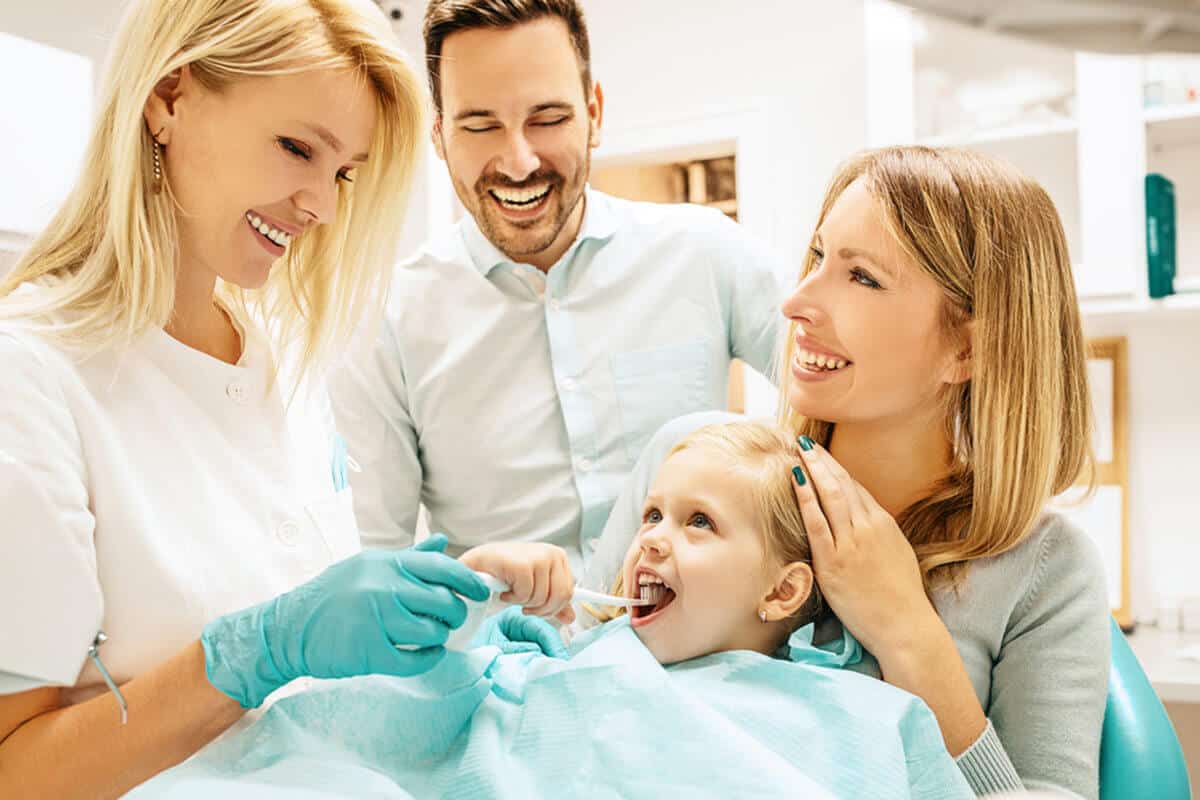Adults know all the details of good oral hygiene — brushing, toothpaste, toothbrushes, flossing, mouthwash, regular dental appointments, and the like. By the time we are adults, those habits are deeply ingrained and hold us in good stead as our teeth and gums mature. It doesn’t mean we won’t need dental work one day, but these habits are a good foundation for a healthy mouth.
That foundation is best built by teaching, supporting, demonstrating and encouraging those habits from a very young age. Have you got an infant or child at home? Set them up for a lifetime of good oral health with good early habits and support from a pediatric dentist near you.
What should I do before any teeth start to show?
Babies are born with 20 teeth. You just can’t see them since they lay beneath the gums. They usually start making their first appearance between six months and a year after birth. Even before then, keep your child’s gums clean using a cloth and water, or a soft toothbrush designed for an infant.
When should we start brushing our child’s teeth?
When your child’s first teeth arrive on the scene, start brushing them twice a day. Use a soft toothbrush designed for your child’s age. Some children’s dentists recommend starting with just a toothbrush and water, while others are comfortable with using toothpaste right from the outset. Ask a pediatric dentist in Millwoods what they recommend for your child.
Don’t fall for the trap of thinking that, because these baby teeth are going to fall out, they’re not important. Your child’s baby teeth are an essential part of their learning to speak properly. Cavities and gum disease can develop in baby teeth and very young children’s gums. Those baby teeth carve the path that the adult teeth will eventually follow.
How much toothpaste is enough?
A little toothpaste goes a long way. Until your child turns two, use just an amount the size of a grain of rice. For kids over the age of two, use an amount the size of a pea. Don’t forget to teach your child not to swallow the toothpaste, but to spit it out and to rinse well.
When can kids start brushing their own teeth?
When your youngster is able to take over his or her own tooth-brushing depends on his or her manual dexterity, attention span, and teaching skills. Until you’re confident that they’re capable of doing a thorough cleaning job, do it for them and with them. As a very general rule, six-year-olds are often ready to start brushing their teeth, but you know your child best.
Trial and error will reveal the right time to pass the baton. If you don’t feel confident in your own ability to brush your child’s teeth, reach out to a dentist near you and simply ask. They’ll be a lifetime partner in maintaining your child’s oral health.
When should children start flossing?
Children should start flossing — using floss and flossing helpers designed especially for kids — as soon as two teeth have grown in beside each other. From that date, make it a daily part of your child’s dental care.
At your child’s first dental appointment, a pediatric dentist in Millwoods may recommend a specific program of brushing and flossing and set up a routine for regular dental care. It’s also the perfect time to ask any question you have about fluoride, tooth sealants to prevent tooth decay and cavity prevention strategies. While we’re on the topic, when should your child first see the dentist? They should first see a dentist at Dental Elements shortly after that first tooth arrives, and by their first birthday.
Start your child off with strong healthy habits that will last a lifetime. Keep in mind that one of the best things you can do is show the same attention to your teeth, too. Make it a family commitment, and include a pediatric dentist near you in your routine.

